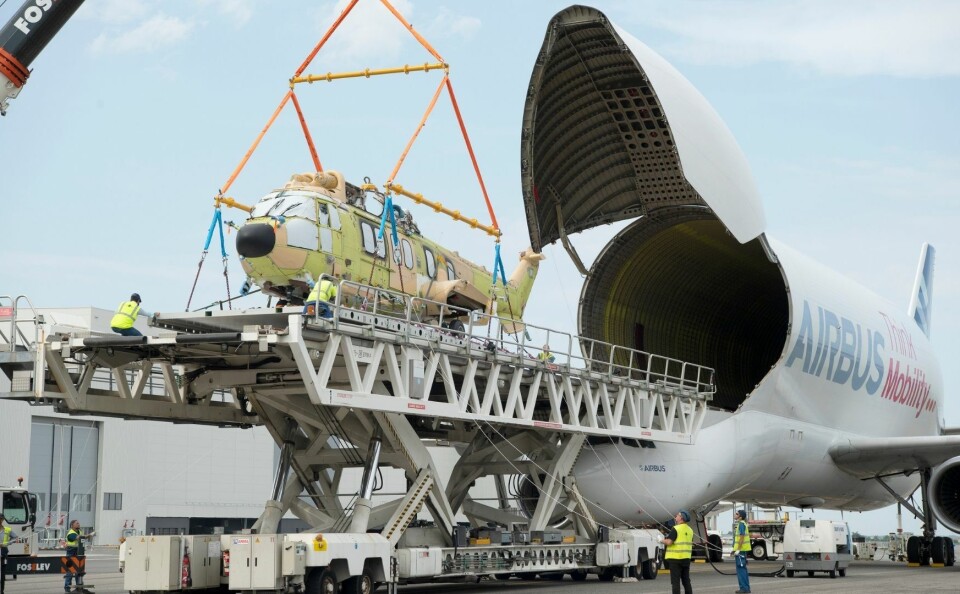-
Extra flights organised from Corsica for travellers stuck due to bad weather
Flights and ferries were cancelled on Sunday because of high winds
-
Have cabin luggage rules changed for French flights in 2025?
A rule change was implemented earlier in the year but then reversed in September
-
EasyJet announces nine new flight routes from France including to UK
A service from Bordeaux to Birmingham is among the new announcements
Five French Beluga planes get second life with new Airbus freight firm
The planes may be 30 years old but can fly for many more years transporting huge cargo like satellites and jets

Airbus has formed a freight transport airline using its fleet of five nearly 30-year-old Beluga SL planes.
Belugas first flew in the 1990s and were developed from the A300-600 aircraft, the first wide-body, twin-engined jet put on sale by Airbus.
Their unusual appearance, which prompted comparisons to Beluga whales and gave them their name, means they are popular whenever they appear, but until now they have been reserved for flying parts of Airbus aircraft from one factory to another.
It means they are seldom seen outside factory airports and, even then, often only at night.
Airbus has now developed a new, larger Beluga called the Beluga XL, based on the A330 aircraft.
Read more: French firm Airbus reveals new non-stop 20 hour plane
It decided to form the freight airline with the older models, rather than keep them in hangars or have them scrapped.
The Beluga SL can carry stranded jets
Philippe Sabo, who is in charge of oversize transport at Airbus, said: “The Beluga’s wider cross-section will open up new markets and logistical possibilities for customers.”
Head of the new airline Clément Beaunis added: “The large dimensions are also attractive for satellite manufacturers, for example, because it allows them to design bigger ones in future.
“At the moment, the size of satellites is limited by the size of transporters used to get them from the factory to the rocket – the Beluga will remove the present size limitations.”
The Beluga might also be used to fly replacement jet engines to stranded aircraft at airports.
The large air intakes and fan blades, which usually have to be taken off for transport in standard freight aircraft, can be left on, meaning engines can be changed much more quickly.
With a cross-section able to accommodate loads of 7.1m in width and 6.7m in height, the Beluga SL is the largest freely available transport aircraft in the world.
The planes have not been heavily used
A trial mission for the airline, which is called Airbus Beluga Transport, involved flying a fully assembled large passenger helicopter from Airbus Helicopters’ factory at Marignane, near Marseille, to Kobe in Japan.
Only the rotor blades of the helicopter had to be folded back to fit it into the Beluga.
The flight involved refuelling at Warsaw in Poland, Novosibirsk in Russia, and Seoul, Korea.
Because their work was limited to Airbus activity, the Beluga SL planes have relatively few flights under their wings, with estimates of just 15,000 cycles – a cycle involves a takeoff, pressurisation, depressurisation and landing – each.
This means they should be reliable for many years to come.
The new airline will have a dedicated crew and the aircraft will have instrument upgrades to enhance intercontinental navigation capabilities.
New loading and unloading systems, including a lift carried in the aircraft, have also been developed so the Belugas can be turned around quickly on the ground, even when they are at airports without suitable loading platforms.
Related articles
French aircraft giant Airbus delivers last A380 superjumbo to Emirates
France’s favourite brands in 2021: Decathlon, Peugeot, and Leclerc
Innovative French service offering airline recycling and storage
























